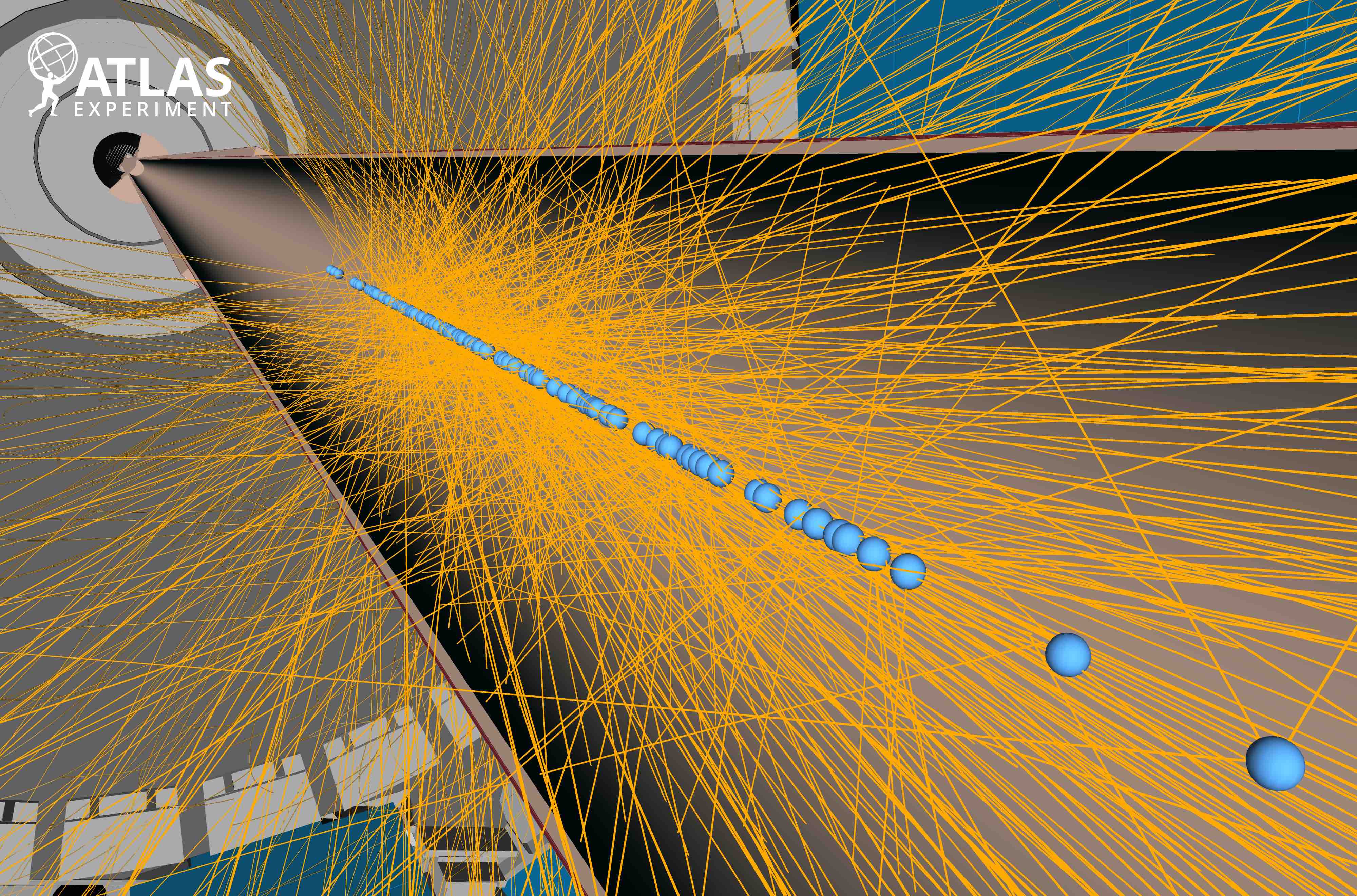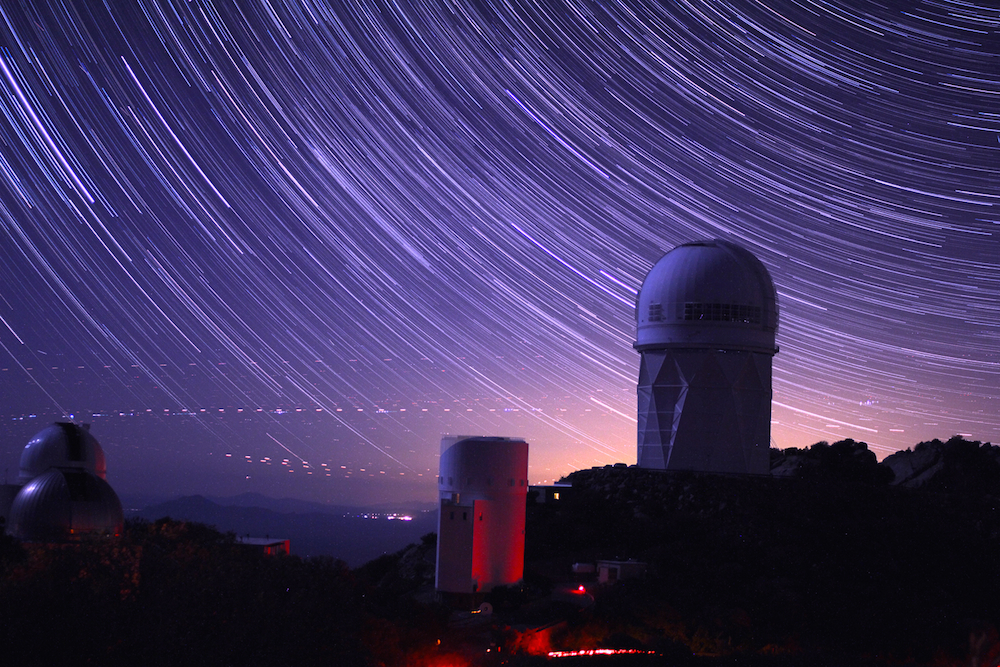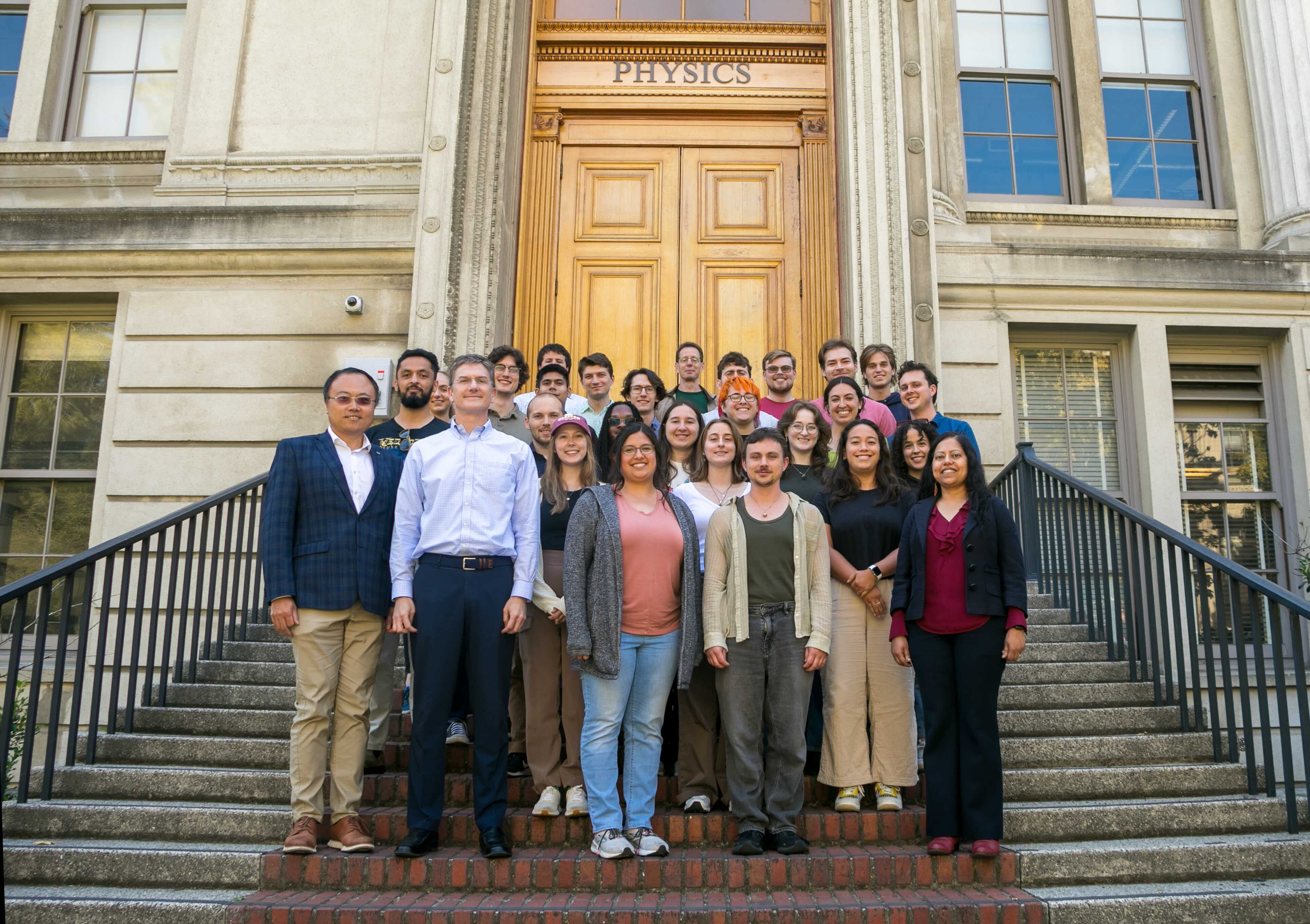A New Program to Advance Fundamental Science
WATCHEP is a training program with the goal of developing a workforce of experts in computational high-energy physics. These experts are needed to help make the most of the complex experimental projects and high-volume datasets. They will be the "computing ambassadors" to the high-energy physics community.
Graduate student trainees from the partner universities will complete a tailored instructional curriculum and a supervised research project in a relevant topical area. Trainees are provided financial support during their training period in the program. We expect this program will contribute to the DOE workforce in high-energy physics on the various scientific frontiers.


Image credits: ATLAS collaboration, P. Marenfeld and NOAO/AURA/NSF
News and Posts
-
Announcing the fourth cohort of WATCHEP student trainees
We are excited to announce the fourth WATCHEP training cohort, for the period 2026-2027. A total of eight students were selected in a competitive process that took into account their proposed research, community engagement, initiative, and leadership. New funding from DOE OHEP allowed us to introduce a fourth focus area–Artificial Intelligence and Machine Learning–to join the existing areas of Hardware-Software Co-Design, Collaborative Software Infrastructure, and High-Performance Software and Algorithms. Read more about this year’s cohort in the “Trainees” tab in the top menu.
-
Student applications are open for WATCHEP training program

We are pleased to announce that the selection process for the 2026-2027 WATCHEP training cohort has started. The 18-month training program is intended to provide opportunities for students in computational high-energy physics from a group of six Western universities. Please visit the “Apply” tab in the top menu for information and access to the application form. All submissions received on or before October 31, 2025 will be considered for selection to the cohort starting on January 1, 2026 and ending on June 30, 2027. There may be a possibility of extension to a full 2-year term, subject to funding availability.
-
WATCHEP strengthens training in Artificial Intelligence / Machine Learning
The WATCHEP program has been awarded new funding to expand training into the key area of Artificial Intelligence and Machine Learning. The addition of this fourth focus area highlights the importance of AI/ML in high-energy physics and in the DOE computing sphere. We look forward to welcoming the first cohort of AI/ML trainees, starting in January 2026.
-
Report on Summer School 2025 at Berkeley

Computational HEP 2025 summer school participants and instructors outside of Physics building at UC Berkeley. Photo credit: Haichen Wang, UC Berkeley / LBNL.
The Department of Energy Computational High-Energy Physics training programs combined again for the 2025 summer school, hosted by Lawrence Berkeley National Laboratory and University of California, Berkeley. The sessions held June 23-27 introduced hands-on development exercises, high-performance computing lectures, open-source software community introductions, and career panel discussions.